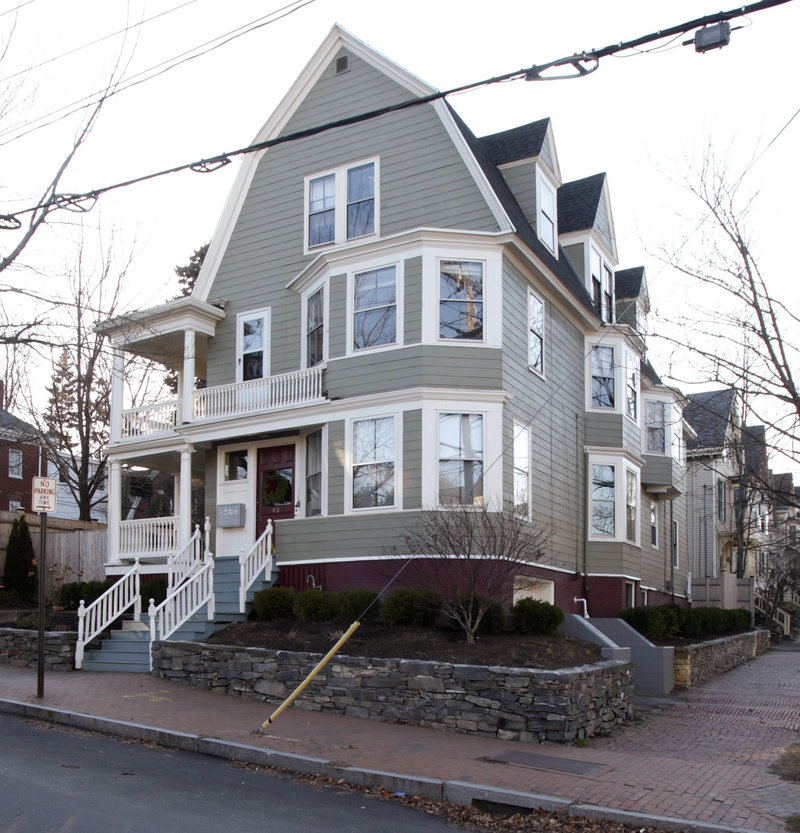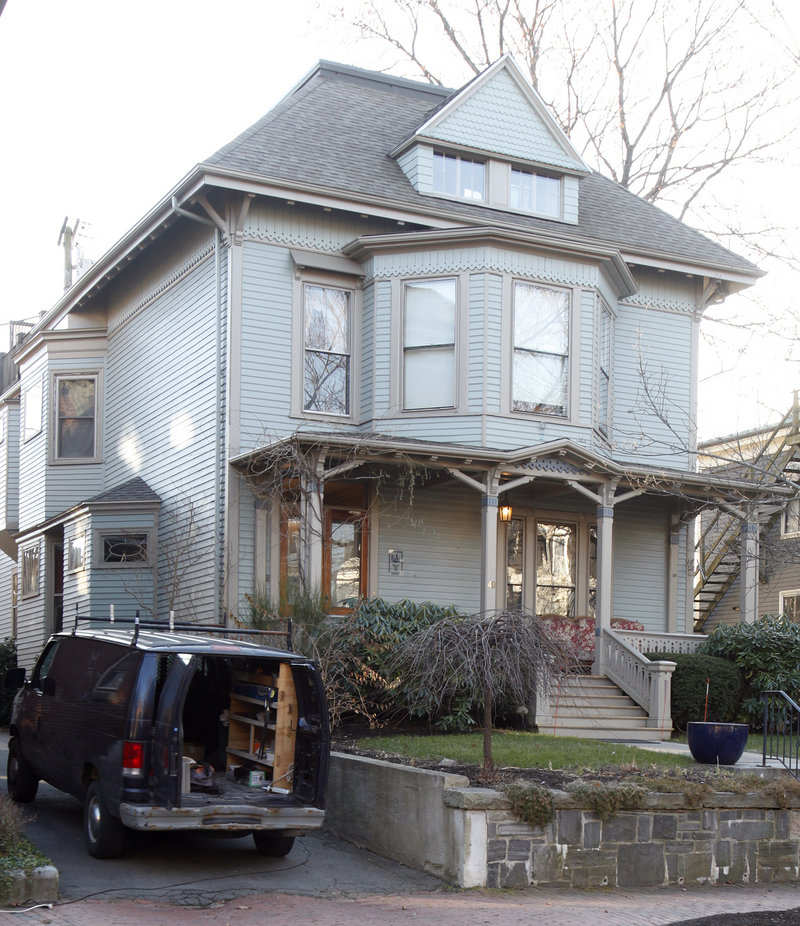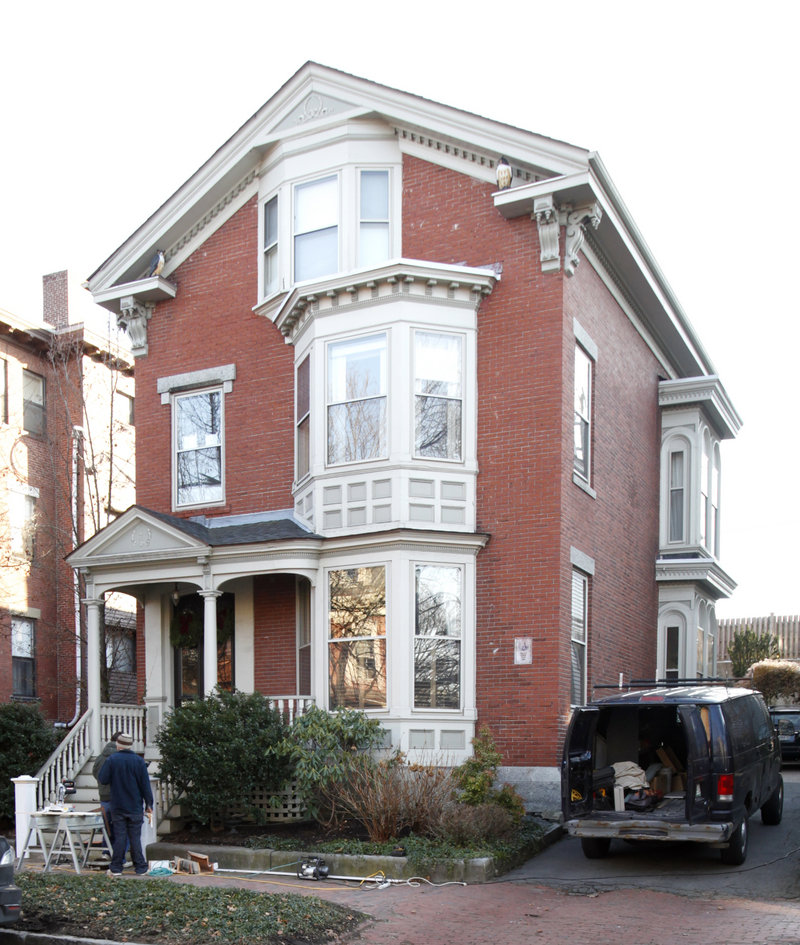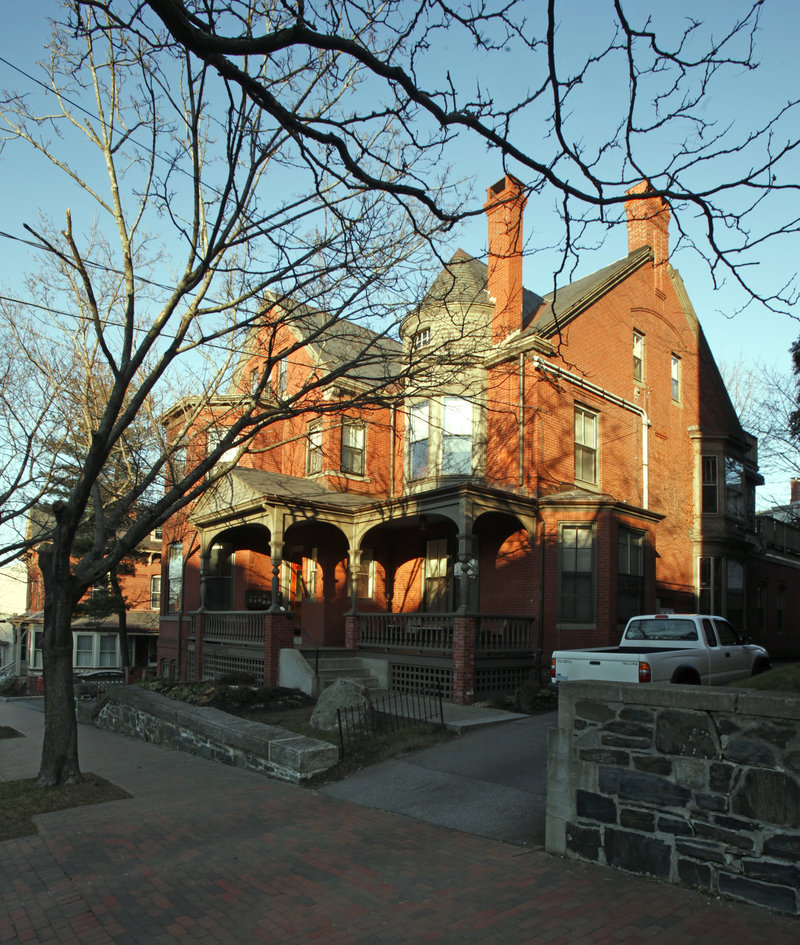PORTLAND – The recent expansion of a substance abuse recovery group in Parkside has some residents concerned about the future of their neighborhood.
Foundation House operates four houses within a one-block radius for people who are trying to live sober lives. The houses are at 42 Mellen St., 235 State St., 38 Deering St. and 40 Deering St.
The two properties on Deering Street were purchased within the last two years, and residents are concerned that Foundation House plans to buy more homes in the area, changing the fabric of their neighborhood.
Residents contested Foundation House’s use of its properties to city officials, arguing that the homes were being used as sheltered-care homes. Such homes are allowed in the residential zone under certain conditions, including a requirement that they be at least 500 feet from one another.
“A neighborhood can tip either direction very, very quickly,” said Robert Giovannini of Deering Street. “Everybody has worked hard to make this solid, wonderful neighborhood very diverse, and I don’t want to see that undermined because the code is being used incorrectly.”
City officials ruled that the homes’ use falls within the zoning code.
The city defines a sheltered-care home as “a facility which, in addition to providing food and shelter to a defined population, provides guidance or counseling services. Such services are the primary function of the facility.”
Zoning Administrator Marge Schmuckal ruled in October that the homes did not meet that definition, because food is not provided to residents and most of the counseling is done on the third floor of the State Theatre building on Congress Street.
Schmuckal wrote that 38 Deering St. is still considered a single-family home, even though Foundation House uses it as its business address. And 40 Deering St. is being used as a lodging house, but needs upgrades to meet city codes, she wrote.
Under the city code, a single-family can house as many as 16 unrelated people.
Seven Parkside residents appealed the city’s ruling, but the Zoning Board of Appeals upheld it on Dec. 6.
The Parkside Neighborhood Association supported the appeal as a way to learn more about Foundation House, said the association’s president, Emma Holder.
Foundation House founder Patrick Babcock declined to talk about his organization or the homes. Instead, he referred a reporter to the group’s website.
According to the website, Foundation House, which opened in 2002 and is owned by PK Holdings Inc., is “an industry leading, extended care sober living program.” It promises a “high dignity and no drama” environment for recovery.
“All of our facilities are located within a block of each other, right in the heart of Portland, Maine,” a brochure says.
Foundation House, a member of the National Association of Addiction Treatment Providers, provides a 12-step recovery program based on Buddhist principles and offers a variety of team-based activities, it says.
It claims that, since 2002, 90 percent of the men have stayed sober while living in its facilities.
Parkside residents say they are less concerned about the people who stay in the homes or the way the homes are run than they are about the number of homes within a block of each other.
“It appears to us that Foundation House has carefully structured its operations to avoid the city’s policy intent, which was both to preserve single-family housing stock and to avoid clustering of transitional housing by distributing housing uses throughout the city,” the residents said in their appeal.
Giovannini, one of the appellants, said he also is concerned that the homes are not appropriately labeled according to their use.
“It’s a treatment facility but it’s not labeled as such,” he said. “We have the Serenity House, and they don’t pretend to be anything other than what they are.”
Serenity House, on Mellen Street, is an alcohol recovery program.
Giovannini said he is concerned because Foundation House presents itself to city officials as a bunch of men living together, but advertises online as an upscale extended-care treatment center.
In their appeal, the residents claim that clients pay about $3,000 a month to stay at Foundation House. Babcock would not disclose rent terms.
“We find it inconceivable that rents do not reflect the level of treatment program support described on their website, whether delivered on-site or off,” the residents said in their appeal.
Parkside residents sought help from Anne Pringle, a former mayor and city councilor who represented Parkside and the West End when the issue of sheltered-care facilities was last studied, in the 1990s.
At the time, the real estate market was down and “special-criteria housing” started popping up in Parkside, Pringle said.
“What I distilled it down to was, their concern was clustering in one neighborhood,” she said. “What appears to be occurring again is the same thing here almost 20 years later.”
Pringle said the city should create a map of special-criteria homes to get a clear understanding of which neighbors are most affected.
The issue also caught the attention of Penny Stevens, who lives on Vaughn Street in the West End.
“I think it could spread,” Stevens said. “There are a lot of houses up here (that Babcock) would find attractive.”
Acting City Attorney Danielle West-Chuhta said Portland’s ability to prevent clustering of such homes is limited by state, federal and case law, since Foundation House treats people who are legally identified as handicapped.
West-Chuhta said the city tried to limit the location of a halfway house in the 1990s but the effort was deemed unconstitutional in Maine Superior Court.
City Councilor David Marshall, who represents Parkside and the West End, said the foundation provides a much-needed service but residents have raised legitimate concerns. He plans to ask the council to look at the way the city code addresses such facilities.
The city could require special approval for lodging houses, which would give residents a chance to learn about the facilities at public forums before they are established in a neighborhood.
“I think it’s important for the public to understand who their neighbors are in a way that’s represented accurately,” Marshall said. “You look at this program — and it’s a great program — but the way it’s fitting into city code doesn’t recognize it as the program it is.”
Staff Writer Randy Billings can be contacted at 791-6346 or at:
rbillings@mainetoday.com
Twitter: @randybillings
Send questions/comments to the editors.






